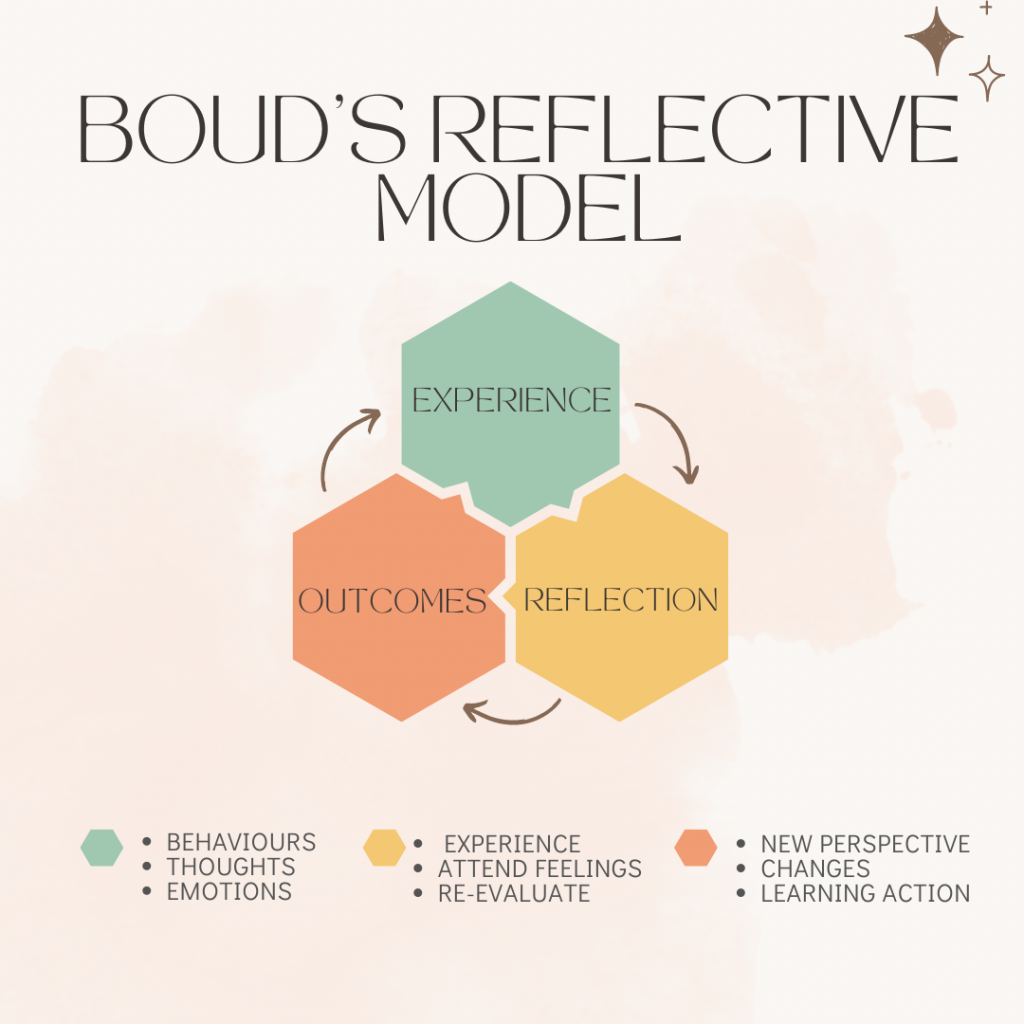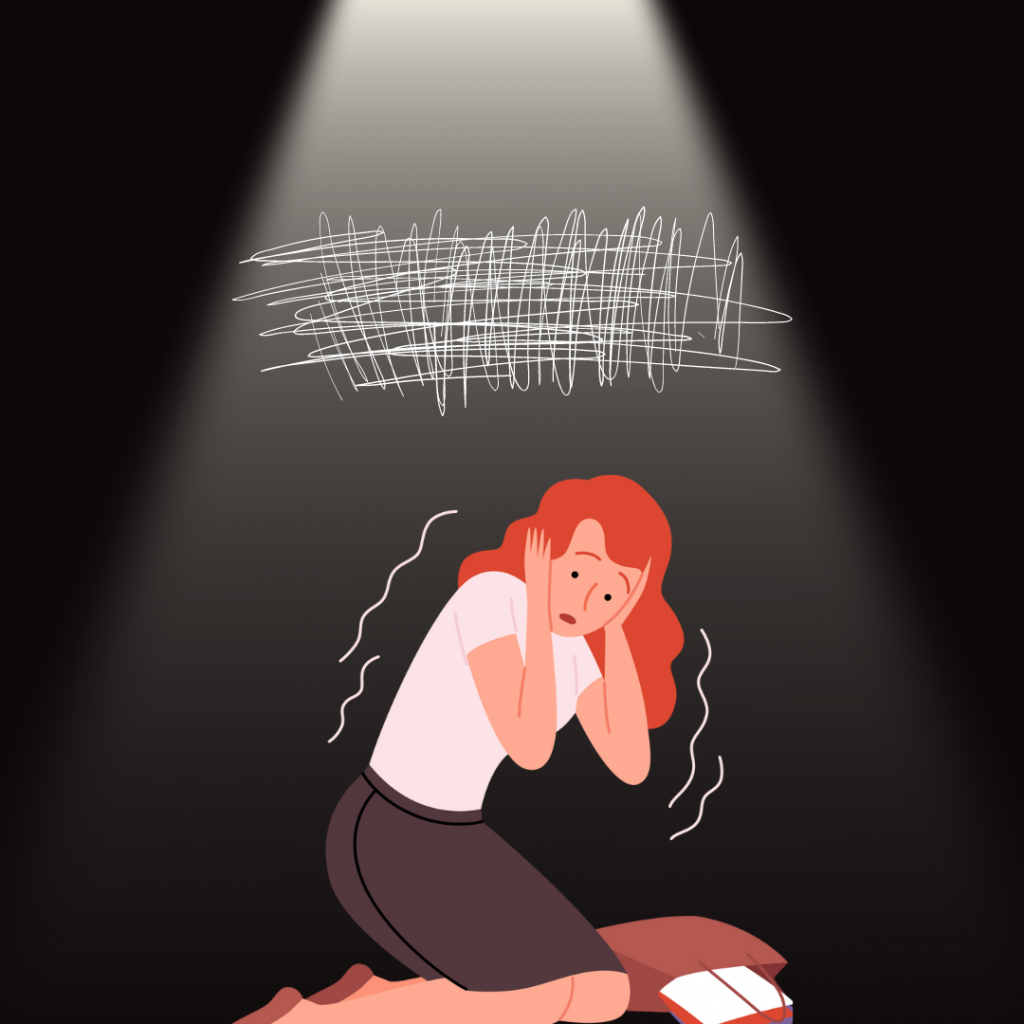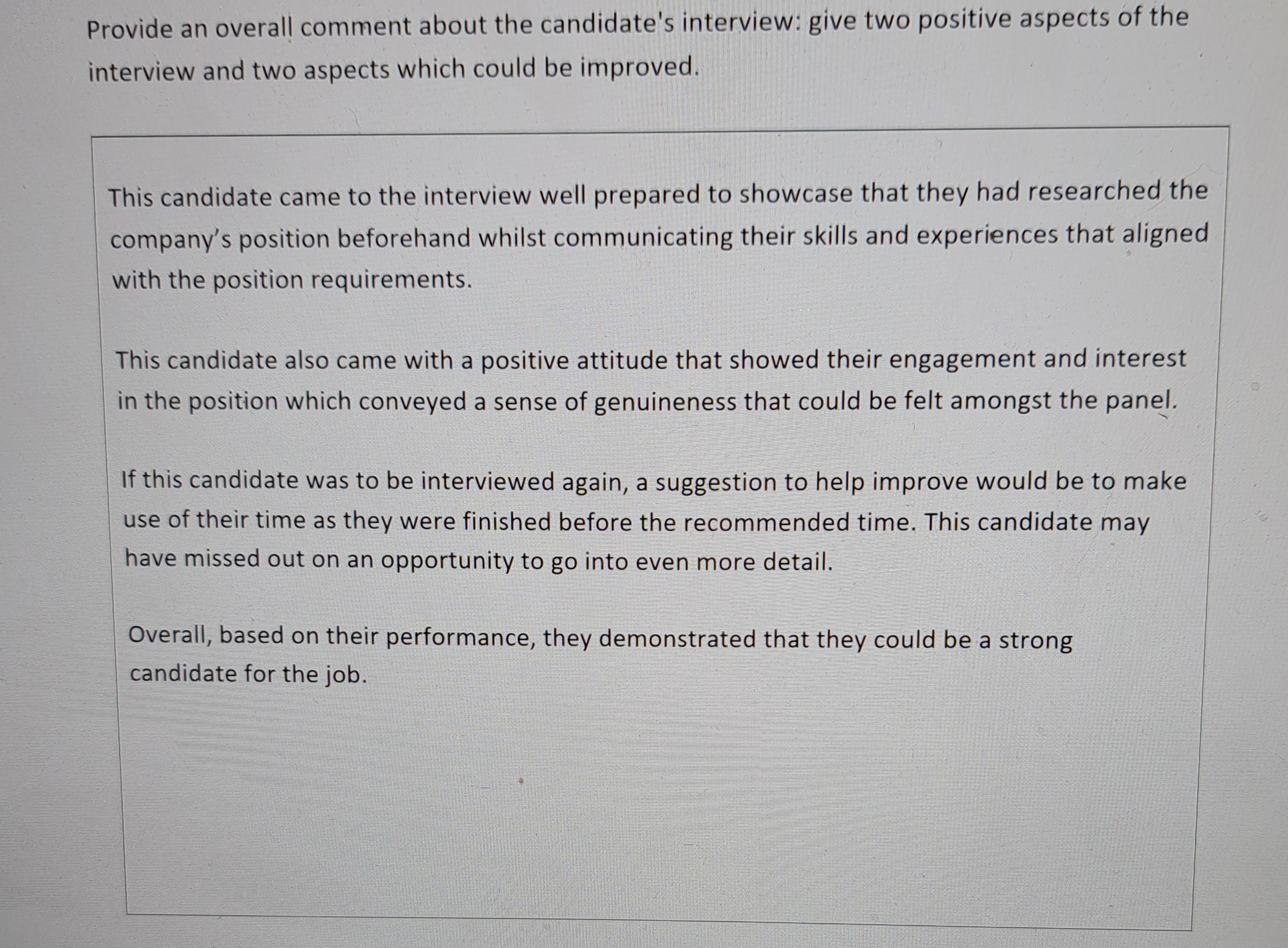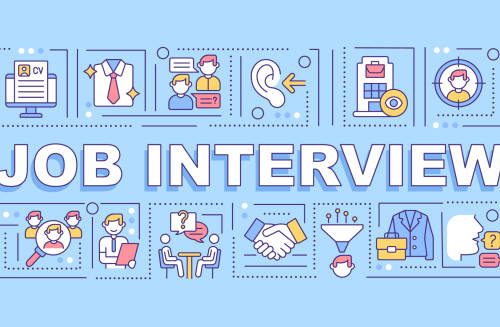ACTING MY WAY TO SUCCESS: DIRECTING SIMULATED JOB INTERVIEWS LIKE A DRAMA PERFORMANCE

(Figure 1, ‘Author’s own’ via Canva, 9 February 2023)
As William Shakespeare famously declared, we all have a part to play in life’s grand performance. This could not ring truer than in the context of a job interview, where the scene is set with a script of questions, and the performers are cast as the interviewer and the candidate. In this production of ‘Simulated Interviews’ brought to you by AEL: Work-based Learning, I found myself in the leading role as the candidate, ready to take my seat and deliver my finest performance of convincing the mock interview panel that I am the perfect ensemble member to their company.

(Figure 2, ‘Author’s own’ via Canva, 9 February 2023)
Thanks to my work-based learning module I had the advantage of participating in a simulated interview that enlightened me on the formation of interview sessions and prepared strategies to overcome common challenges faced within interviews.
This blog will evaluate my experience using Boud’s reflective model (Boud, & Walker 1985) exploring behaviour, thoughts, and emotions, followed by a re-evaluation of this experience, and finally sharing the insights and new perspectives I have gained.
Experience: behaviour, thoughts, and emotions
In the lead-up to interview day, I was feeling confident and eager to showcase to my peers on the interview panel, my abilities, knowledge, and personality. I had rehearsed for hours, knew my material inside and out, and was positive that I would nail it. That was the feeling… until an all too familiar night before nerves began. My mind began to race, and I could not seem to stop. I started to replay every possible scenario in my head; from being asked difficult questions, to stumbling over my words–to freezing in the spotlight. And, before I knew it, I was experiencing every possible emotion, from eagerness to fear to pure PANIC… but this was a feeling I had experienced before.
Let me introduce you to… ‘STAGE FRIGHT!’

(Figure 3, ‘Author’s own’ via Canva, 9 February 2023)
In the article ‘Stage fright: its experience as a problem and coping with it’ performance anxiety (also referred to as stage fright) is described as a group of disorders affecting individuals in a range of endeavours, such as public speaking, sport, and the performing arts. (Regina, 2010). Just like a performance, a job interview requires you to be on your game and perform to the best of your ability whilst also being evaluated and judged on your responses, body language, and demeanour.
The pressure of being in the ‘interviewee spotlight’ can cause intense nervousness, which has been known to create a state of existential self-doubt. (Scott, 2017). This was a difficult and challenging experience for me to navigate and took me some time to overcome this feeling and move forward with confidence as I was often asking myself “why now?”
Furthermore, I discovered in this article that stage fright can occur at any moment to anyone. (Regina 2010). This means that it can affect people of all levels of experience and in my case, even someone who has experience in performing. This information was reassuring as it was clear that I was not alone.
Reflection: Experience, attend to feelings and re-evaluate the experience

(Figure 4, ‘Author’s own’ via Canva, 11 February 2023)
In spite of this setback the night before my simulated interview, I was determined to move forward and confront the feelings I was overwhelmed with. To do this, I applied strategies recommended by our career advisors from Queen’s University Belfast and researched how I can help myself cope with interview anxiety.
I opted to be interviewed for the position of technician at the Guildhall School of Music and Drama. The job description illustrated an expectation of following a competency-based interview structure with the outline stating, “give examples of skills, knowledge and experience exhibited in your behaviour of previous roles.” In order to be successful in my simulated interview, (and because every drama student wants to be the STAR of a performance), I followed the STAR technique that included key details to help with the preparation that allowed me to showcase my STAR quality in my job interview.

(Figure 5, ‘Pinterest’, 2019)
Although following this structure was beneficial, I believe researching how to acknowledge my feelings before the interview helped me manage my nerves.
Arlin Cuncic’s article ‘How to Relax Before a Job Interview’, was a perfect source of providing practical tips that I was able to apply to acknowledging my interview nerves and overcoming them. The overall article offered evidence-based approaches from external researchers that were successful in using interview nerves to your advantage. I found this quote particularly noteworthy; ‘self-affirmations remind individuals of psychosocial resources that extend beyond a specific threat, which allows them to focus on sources of positive self-worth that transcends the threat.’ (Cohen & Sherman 2014). By reminding myself of my positive traits, skills, and values, that I gained as a performer in Drama, I was able to feel more confident in overcoming the types of interview questions that were presented to me.
I believe this was evident in the interview feedback I received from my peers:

(Figure 6, ‘Interview Feedback’, via Canva, 1 February 2023)
Reflecting on this feedback helped me feel a greater sense of self-worth as I was able to reveal how I could broaden my mind beyond the interview challenges of feeling nervous and focus on my overall strengths and preparation. Overall, I believe that practising self-affirmations can create a more positive self-image, which can lead to better mental and physical health outcomes. (Cuncic, 2022).
Outcome: New perspectives, changes and learning action

After what felt like a long period of worrying about the simulated interviews, I was provided with a great opportunity to gain new perspectives and insights such as learning to acknowledge that my feelings are valid but to also have faith in myself.
By taking part in the interview, I found it valuable to discover how to improve my communication skills by handling the dreaded unexpected questions. Interestingly this was a skill I applied by reflecting on Drama exercises that require us to think on our feet, respond quickly and creatively to a given situation.
This experience also gave me the opportunity to flip the position of receiving feedback to giving feedback to others as the interviewer. This gave me an insight on how I can improve my interviewing techniques with practice that hopefully will lead to a better performance in real-life interviews.
Boud, D., Keogh, R., & Walker, D. (1985) Promoting Reflection in Learning: A Model. Reflection: Turning Refection into Learning. London: Routledge.
Cascio CN, O’Donnell MB, Tinney FJ, et al (2016) ‘Self-affirmation activates brain systems associated with self-related processing and reward and is reinforced by future orientation’ Soc Cogn Affect Neurosci. 11(4), pp621-629.
How to Relax Before and During a Job Interview (2022). Available at: https://www.verywellmind.com/tips-cope-with-job-interview-anxiety-3024324
Regina, S. et al. (2010) ‘Stage fright: its experience as a problem and coping with it’, International Archives of Occupational and Environmental Health, 84, pp.761-771.
Scott, S. (2017) ‘Transitions and Transcendence of the Self: Stage Fright and the Paradox of Shy Performativity’ Sociology, 51 (4), pp.715-731.
Frequently Asked Questions
You May Also Like

To Be Or Not To Be – That Is The Interview Question
23 February 2023
BE A S.T.A.R 🌟
14 February 2023
